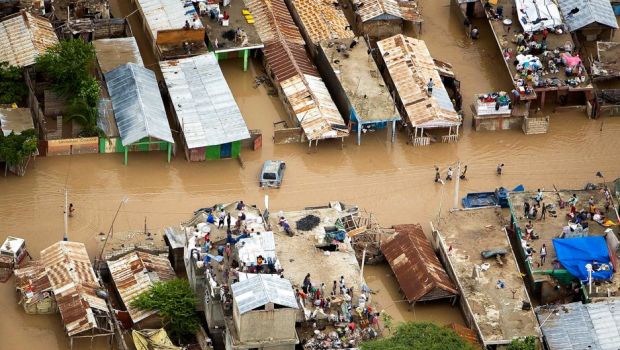Eventos
Approaches for gender-responsive GCM implementation in the context of migration and climate change
Climate change, environmental crises and disasters disproportionately affect women and girls, in particular those in vulnerable and marginalized situations. In turn, gender inequalities and women’s unequal access to land and natural resources, finance, technology, knowledge, mobility, and other assets constrain the ability of women to respond and cope in contexts of climate and environmental crises and disasters.
In this event a diverse panel will discuss and emphasize the over-looked interrelation between human mobility in the context of climate change (HMCCC) and gender. It will bring together leading thinkers and stakeholders from different fields who will highlight existing gaps and present case studies, and good practices that illustrate the impacts of the gender dimensions of HMCCC and propose innovative gender-responsive approaches to address them. The objective is to promote concrete action for a gender responsive implementation of the GCM.
Climate change and environmental crises cause loss of livelihoods and depletion of natural resources fueling migration and displacement. By 2050, up to 216 million people could move within their countries as a result of climate change. While sex-disaggregated data is limited or unavailable, evidence suggests that the adverse effects of climate change affect women and girls in developing countries most, especially across Africa. They face a heightened risk of gender-based violence and child marriage, negative impacts on maternal and neonatal health and a greater burden of unpaid care and domestic work.
Human mobility can influence gender dynamics by both, entrenching traditional gender roles and perpetuating existing inequalities as well as by challenging and changing them. If HMCCC is well managed, it can generate opportunities for women in receiving and sending communities, such as changes in leadership roles, including in the context of adaptation and mitigation strategies to address the climate crisis.
The Global Compact for Migration (GCM) includes gender-responsiveness as one of ten guiding principles and under Objective 2, climate change, environmental degradation, and disasters were identified as adverse drivers that compel people to leave their country of origin. In addition, the Paris 2 Agreement underscores the centrality of gender equality and the empowerment of women and the Commission on the Status of Women, at its sixty-sixth session, considered “Achieving gender equality and the empowerment of all women and girls in the context of climate change, environmental and disaster risk reduction policies and programmes” a priority theme.
However, regional and national legal and policy frameworks on HMCCC do not yet provide a cohesive basis for gender-responsive migration governance that fulfils the rights and needs of women and girls, nor do they ensure women’s participation in decision-making. Major challenges include (1) lack of disaggregated data and research, (2) policy gaps, (3) limited stakeholder coordination, (4) lack of capacity and (5) a lack of gender responsive practical approaches. This event is a call for action to close existing gaps and ensure HMCCC is addressed in a gender-responsive manner.
The event will take virtually via MS Teams. Click here to join the meeting.
